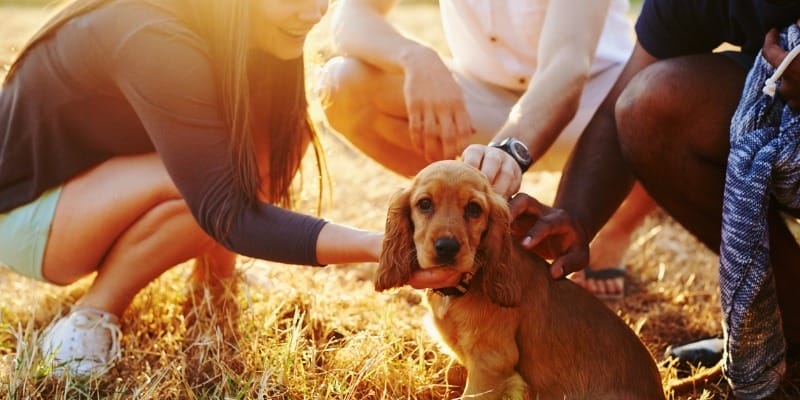There’s nothing quite like the joy of bringing a new puppy into your home, but proper socialization is key to raising a well-adjusted dog. By exposing your furry friend to new people, animals, and environments early on, you can help them develop into a confident and friendly companion. In this guide, we’ll share crucial tips and techniques to ensure your puppy grows up to be a happy, social, and well-rounded member of the family. So, let’s get started on the path to a well-adjusted dog together!
Key Takeaways:
- Socialization is key: Early and positive socialization experiences are crucial for a well-adjusted dog.
- Exposure to different environments: Introduce your puppy to various people, animals, sights, sounds, and surfaces to help them feel comfortable in different environments.
- Positive reinforcement: Use treats, praise, and rewards to reinforce good behavior during socialization experiences.
The Importance of Socialization
Why Socialization Matters
The early months of your puppy’s life are crucial for their development, especially when it comes to socializing with other dogs, people, and new environments. It is during this period that they are most receptive to learning and adapting to new situations. Proper socialization helps your puppy become a well-adjusted and confident adult dog, able to handle various interactions and environments without feeling fearful or anxious.
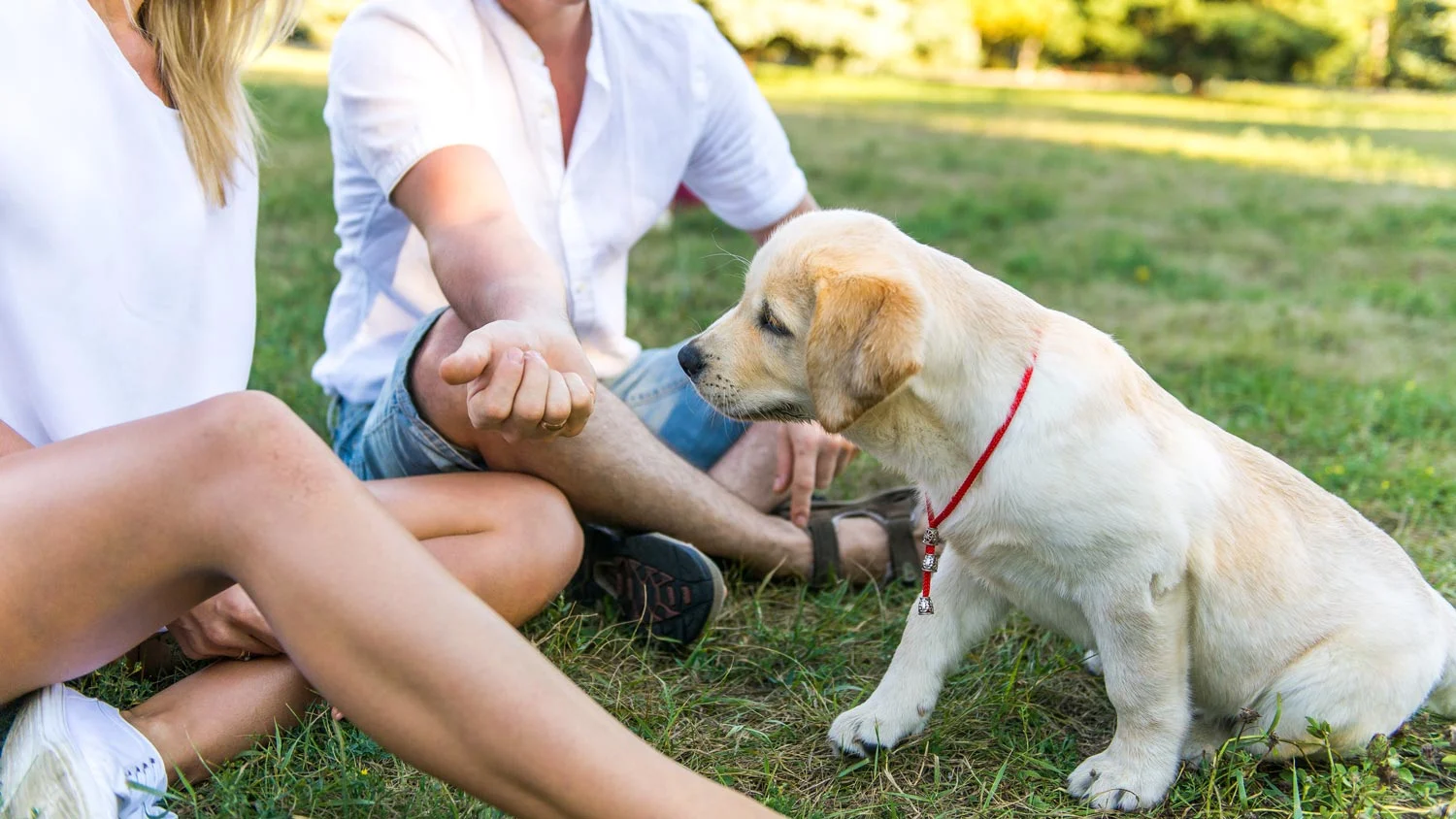
By exposing your puppy to different sights, sounds, smells, and experiences in a positive and controlled manner, you are helping them build a strong foundation for future social interactions. This early socialization can prevent behavioral issues in the future, such as aggression, anxiety, and fearfulness.
The Consequences of Poor Socialization
Socialization is not something you can afford to skip or overlook when raising a puppy. The consequences of poor socialization can be significant and may last a lifetime. A poorly socialized dog may exhibit fear, aggression, or anxiety when faced with new people, animals, or environments. This can lead to stressful situations for both you and your furry friend, making daily interactions challenging and potentially dangerous.
With proper socialization, you can help your puppy grow into a well-adjusted dog that is comfortable and confident in various situations. By laying a strong socialization foundation early on, you are setting your furry friend up for a lifetime of happy and stress-free interactions.
When to Start Socializing
Assuming you’ve recently welcomed a puppy into your home, you might be wondering when to start socializing them. The answer is simple – the sooner, the better! Socialization is a crucial part of your puppy’s development, shaping their behavior and personality for years to come.
The Ideal Age for Socialization
With puppies, the critical socialization window typically starts at around 3 weeks of age and continues until they are about 14 weeks old. During this period, your puppy is most receptive to new experiences and less likely to be fearful or aggressive towards unfamiliar situations. This is the perfect time to introduce them to a variety of people, animals, environments, and experiences in a positive and controlled manner.
Don’t Wait Too Long!
For optimal results, it’s vital not to delay the socialization process. Waiting too long can result in missed opportunities to help your puppy develop important social skills and prevent behavior issues later in life. The window of opportunity for effective socialization starts closing around 14-16 weeks of age, so the earlier you start, the better chances you have of raising a well-adjusted and confident dog.
Ideally, you should begin the socialization process as soon as your puppy has received their first round of vaccinations and is cleared by the vet to interact with other dogs and animals. Be mindful of, proper socialization is a lifelong journey that requires ongoing effort and commitment from you as a responsible pet owner.
Where to Socialize
Once again, socializing your puppy is crucial for their development into a well-adjusted dog. There are various places where you can take your puppy to socialize and expose them to different environments, people, and other dogs. Here are some key places to consider for socializing your furry friend:
Puppy Classes and Training Sessions
An excellent way to socialize your puppy is by attending puppy classes and training sessions. These classes not only provide valuable obedience training but also offer an opportunity for your pup to interact with other dogs in a controlled environment. Your puppy will learn how to behave around unfamiliar dogs and people, helping them become more confident and well-mannered.
Dog Parks and Outdoor Spaces
With proper supervision, dog parks and outdoor spaces can be great places for your puppy to socialize and burn off some energy. These areas allow your dog to meet and play with other dogs, helping them develop important social skills. However, it’s crucial to choose dog parks that are safe and well-maintained to ensure a positive experience for your puppy.
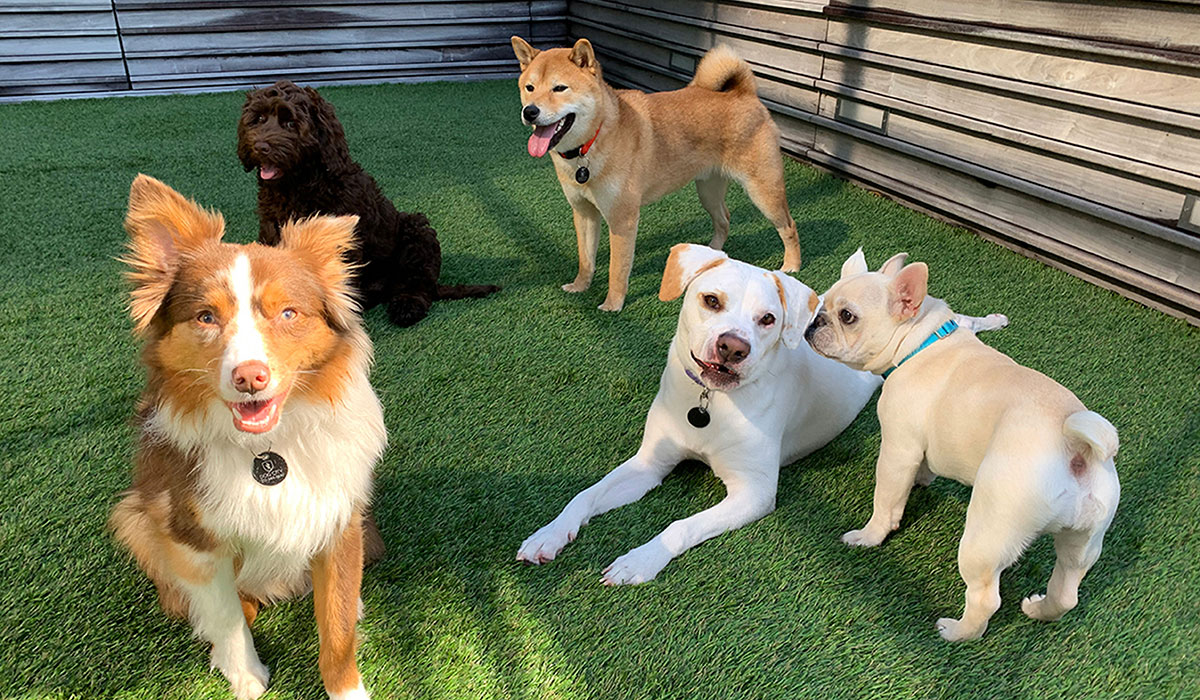
Training your puppy to socialize in public parks and outdoor spaces is a great way to expose them to various sights, sounds, and smells. These environments can help your puppy become more adaptable and comfortable in different settings, making them more well-rounded and less likely to develop fear or anxiety towards new experiences. Remember to keep a close eye on your puppy and always clean up after them to be a responsible pet owner.
Visiting Friends and Family
Sessions with friends and family who have well-behaved dogs can also provide valuable socialization opportunities for your puppy. These familiar settings allow your puppy to interact with other dogs in a comfortable environment, reinforcing positive social behaviors. Additionally, it’s a great way for your puppy to bond with loved ones and build trust with new people and animals.
Visiting parks with your puppy is another excellent way to socialize them in a new environment. Parks offer a mix of sights, sounds, and smells that can stimulate your puppy’s senses and provide them with valuable exposure to different stimuli. Whether it’s a trip to the local park or a nature hike, these outings can help your puppy become more confident and well-adjusted in various outdoor settings.
Who to Socialize With
People of All Ages and Genders
Many different types of people will cross your puppy’s path throughout their life, so it’s important to expose them to a variety of individuals from an early age. From young children to elderly adults, males and females of different ethnicities, it’s imperative that your puppy learns to feel comfortable and secure around all kinds of people.
The more diverse the group of people your puppy interacts with, the better they will learn to adapt to various social situations. This will help them grow into a well-rounded and confident dog that can handle any encounter with ease.
Other Dogs and Animals
On your socialization journey, don’t forget about the importance of interactions with other dogs and animals. Allowing your puppy to meet and play with different dogs will teach them valuable social skills and proper canine communication.
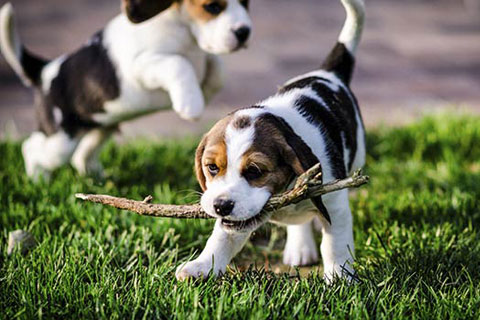
Understanding dog body language and behavior is crucial for your puppy’s social development. Encountering various animals like cats, birds, or even farm animals can also help your puppy become more adaptable and less fearful in new situations.
New Environments and Experiences
Animals thrive in diverse environments, so it’s vital to introduce your puppy to new places and experiences regularly. Take them to the park, the beach, or even on car rides to help them grow accustomed to different surroundings.
Exposing your puppy to various stimuli such as different sounds, smells, and textures will help them build confidence and reduce anxiety. This will result in a well-adjusted dog that can handle new experiences with ease.
How to Socialize Effectively
Your puppy’s socialization is crucial for their development into a well-adjusted dog. Here are some effective techniques to help socialize your puppy properly.
Positive Reinforcement Techniques
On your socialization journey with your puppy, positive reinforcement techniques are key. Whenever your puppy exhibits good behavior during social interactions, such as being calm and friendly with other dogs or people, be sure to reward them with treats, praise, or playtime. This positive association will encourage your puppy to continue the desirable behavior, making socialization a positive experience for them.
Desensitization and Counterconditioning
Desensitization involves gradually exposing your puppy to different stimuli in a controlled and positive way. For example, if your puppy is afraid of loud noises, start by playing recordings of the noises at a low volume while engaging your puppy in a fun activity. Over time, gradually increase the volume as your puppy becomes more comfortable, always providing positive reinforcement. Counterconditioning involves changing your puppy’s emotional response to a particular stimulus by associating it with something positive.
For instance, if your puppy is scared of strangers, you can pair the sight of a stranger with a tasty treat. This will help your puppy create a positive association with meeting new people, gradually reducing their fear and anxiety.
Managing Fear and Anxiety
Fear and anxiety can hinder your puppy’s socialization progress. If your puppy exhibits signs of fear or anxiety during social interactions, such as trembling, cowering, or excessive barking, it’s crucial to address these emotions promptly. Provide a safe space for your puppy to retreat to if they feel overwhelmed, and avoid forcing them into situations that cause extreme stress.
Understanding your puppy’s body language is crucial in managing their fear and anxiety. If you notice signs of distress, such as flattened ears or a tucked tail, gently remove them from the situation and give them reassurance. Gradually reintroduce them to the trigger in a more positive and controlled way to help them overcome their fears.
Common Challenges and Solutions
Fear of Loud Noises and New Sounds
Keep in mind that puppies, like humans, can be sensitive to loud noises or unfamiliar sounds. To help your puppy adjust, introduce them gradually to different sounds in a controlled environment. Start with softer noises and gradually increase the volume as your puppy becomes more comfortable. Use positive reinforcement, such as treats and praise, to create a positive association with these sounds.
Shyness and Fear of Strangers
To address shyness and fear of strangers in your puppy, expose them to various people in a calm and positive way. Start with family and close friends before gradually introducing your puppy to new faces. Encourage gentle and positive interactions with strangers, rewarding your puppy for calm behavior. Building your puppy’s confidence through socialization will help them feel more at ease around unfamiliar people.
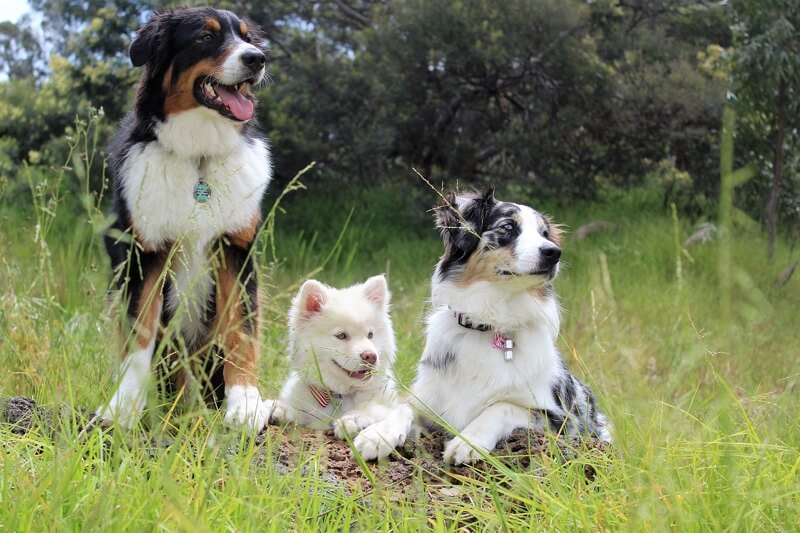
It is important to remember that every puppy is different, and some may naturally be more reserved or cautious around strangers. Patience and consistency in socialization efforts will be key in helping your puppy overcome their shyness.
Resource Guarding and Possessiveness
Fear not, if your puppy displays resource guarding behaviors, such as growling or snapping when approached near their food or toys. To address this, work on establishing a positive association with people approaching their resources. Teach your puppy that when someone comes near their possessions, good things happen, such as receiving treats or praise. This will help your puppy learn to feel comfortable and secure, even when others are around their belongings.
For instance, you can try hand-feeding your puppy their meals or trading their toy for a treat. These exercises will help build trust and reinforce the idea that sharing and interactions with people around resources are positive experiences for your furry friend.
To wrap up
Do not forget, socializing your puppy is a crucial part of their development that will shape their behavior and temperament as an adult dog. By following the tips provided in this article, you can ensure that your puppy grows up to be a well-adjusted, confident, and happy dog. Take the time to expose your puppy to different environments, people, and animals, and always use positive reinforcement to reward good behavior.
Building a strong foundation through socialization will not only benefit your puppy but also strengthen the bond between you and your furry friend. With patience, consistency, and love, you can help your puppy become a well-rounded dog who is comfortable in any situation. So, don’t hesitate to start socializing your puppy today and set them up for a lifetime of success!
FAQ
Q: How can I socialize my puppy effectively?
A: Socializing your puppy effectively involves exposing them to various people, places, and other animals in a positive and controlled manner. Take your puppy to different environments, such as parks, pet stores, and busy streets. Encourage positive interactions with other dogs and people, rewarding good behavior with treats and praise.
Q: When should I start socializing my puppy?
A: The critical socialization period for puppies is between 3 and 14 weeks of age. It is important to start socializing your puppy as early as possible during this period to help them become a well-adjusted and confident adult dog. However, continue to expose your puppy to new experiences throughout their life to maintain their social skills.
Q: What are some signs that my puppy may be struggling with socialization?
A: Signs that your puppy may be struggling with socialization include fear or aggressive behavior towards people or other animals, excessive barking or hiding in new situations, and being overly timid or hyperactive. If you notice any of these signs, consult with a professional dog trainer or behaviorist to address the issues and develop a socialization plan tailored to your puppy’s needs.

